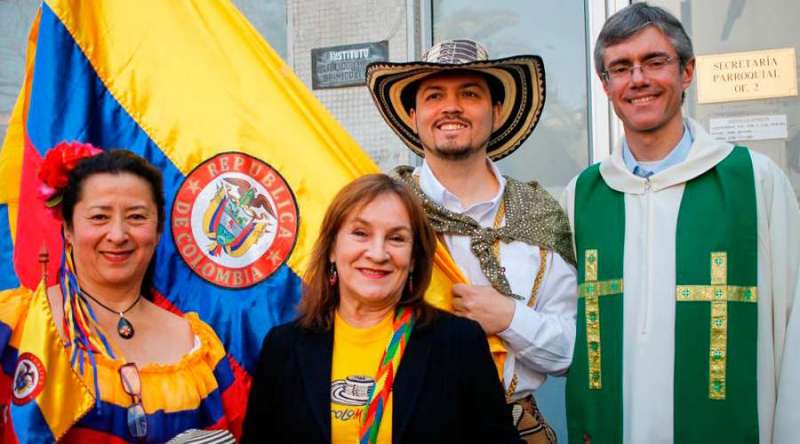For six years, Fr. Marcio Toniazzo has worked as the director of immigration services for the Archdiocese of Santiago in Chile.
In that time, he says he has witnessed “a good marriage…between migration and Chile,” in which “both [have] had to reinvent themselves.”
Toniazzo, a priest with the Congregation of the Missionaries of Saint Charles Scalabrinians, spoke with ACI Prensa, CNA’s Spanish language sister agency, as he concludes his work in the Latin American country.
He said that in his work to help foreigners integrate and assimilate in Chilean culture, he has found that “God was providential with the Church in Chile, because migration is what is revitalizing the Church in the midst of its crisis.”
“The migrant is the one who is working to help incorporate, integrate, improve, heal and go forward,” he said. “The migrant has given a new dynamism to the faith and a clear example is the choirs they have joined in the communities. It’s with that participation that they find a way of showing their love for God and to live the faith through music.”
The energy in the workplace, the cuisine available, and culture that Chile is experiencing “show that migrants came to contribute and have a life experience,” he reflected.
Chile’s economic and political stability has made it a major destination for Latin American immigrants. Politicians in the last year have proposed cracking down on immigration through tighter border control and increased restrictions on access to social services for immigrants.
Toniazzo himself is an immigrant, originally from Brazil. During his time in Chile, he has directed the Chilean Catholic Institute for Migration and served as pastor at a parish.
He has also witnessed the development of the Integrated Center to Serve Migrants, which includes two shelters for men and women, an employment exchange for migrants, and activities to support the assimilation of foreigners and enhance parish work with diverse communities.
This growth has been joyful for the priest. But he has also witnessed moments of sadness, particularly in seeing the limited resources and capacity for immediate housing assistance and food available to migrants who have come to Chile with high hopes.
“As a country, we don’t have enough places to receive and care for the children who come with their mothers, or pregnant women. Many of them have nowhere to live,” he said.
“The big challenge now for immigration is inculturation, an encounter between those who arrive and those who receive them. How to help each other so there is cohesion and a family is formed, a Pentecost and not a Tower of Babel,” he reflected.
Concluding his assignment in Chile, Toniazzo is now headed to Miami, where he will begin a new pastoral ministry with the Brazilian community there.
He said he is both fearful and anxious about migrating the U.S. and starting over with a new country and culture and he works to spread the Gospel.
At the same time, he is grateful for his experiences in Chile and all the volunteers there who “are working in a committed and dedicated manner to advance God’s work” in the two shelters and in the parish.
Toniazzo said he hopes their work will continue to bear fruit, guided by “the words of Jesus: ‘I was a stranger and you welcomed me’.”
“To welcome the migrant is to welcome Christ,” he said. “There can be a lot of difficulties, problems, dissatisfaction and challenges – but Christ is in the migrant and all the good that is done. God doesn’t forget it.”
This article was originally published by our sister agency, ACI Prensa. It has been translated and adapted by CNA.

